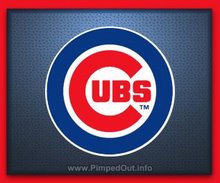In a recent guest article I did for, "Goat Riders Of The Apocalypse," I compared the previous 6 World Series winners, to see if any similarities could be gleaned from each teams makeup. The purpose was to try and develop a template of the key ingredients to use for constructing a winner in Chicago, North Side that is.
By no means did the best team always win the World Series, but most had a considerable number of similarities.
One of the Cubs most glaring weaknesses last year was their rotation, with their top 5 starters only starting 109 games and accumulated just 651 innings in those starts.
By comparison, the last 6 World Series winners received 142 starts and 880 innings pitched from their top 5 starters.
Another glaring weakness of the 2006 Cubs was the amount of walks issued versus the amount of walks taken.
The reason I feel this is such an important stat is two-fold.
On the one hand, when your pitcher issues a walk, your defense has no chance to retire the hitter and the pitchers higher pitch count usually results in fewer innings pitched.
On the other hand, the table of events swings to your teams favor when your players exercise patience at the plate.
A dominant pitching staff can negate some of your teams offensive weaknesses, however the reverse is most certainly not true. Great offenses might accumulate a considerable amount of wins during the regular season, but the playoffs are a sprint to 11 wins where every weakness is magnified.
If there is one player that can dominate a game, the starter is head and shoulders above all the rest. If your starters can't control the game, your offense is always playing from behind.
Hendry must focus on acquiring starters that take the ball every 5th. day and have good HR and BB to innings pitched ratios. Then the Cubs could have a chance to win every game.
Their is a reason most playoff teams win most of their close games. It's called pitching.
Subscribe to:
Post Comments (Atom)



No comments:
Post a Comment